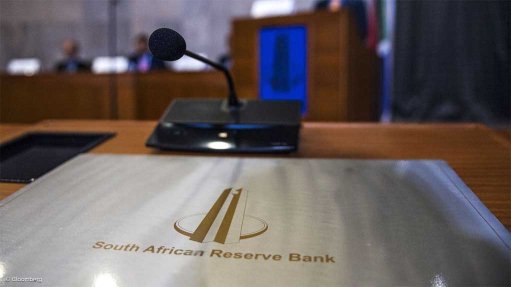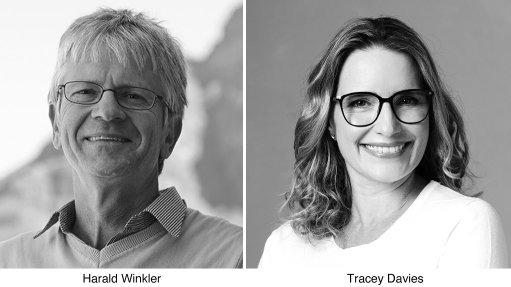Covid-19, spending, debt: now for the hangover
The publication in April of the International Monetary Fund’s (IMF’s) global growth report makes for sobering reading. Much of Africa has a massive hangover after the institution encouraged a heady – almost wanton – splurging of cash as a first line of defence against the impact of lockdown and, in Africa’s case, the near complete severing of north-south trade for almost a year.
In the heat of the crisis, IMF MD Kristalina Georgieva urged governments to “Spend, spend, spend – but keep the receipts”. Leaders of African countries took this to heart and did just that – though not always keeping the receipts. Across the continent, Covid-19 spending has fuelled a debt position that is now unsustainable. According to data website Statista, the 20 highest debt-to- domestic growth product (GDP) ratios are in Africa. Among these, the top five are Eritrea (175%/GDP); Cabo Verde (160%); Mozambique (133%); Angola (103%), Mauritius (101%) and Zambia (101%). Their debt is now unsustainable.
Into this mix throw what UK ‘Winds of Change’ Prime Minister Harold Macmillan called the greatest challenge for a Statesman – “Events, dear boy, events”. The most notable post-Covid event is Russia’s unanticipated invasion of Ukraine, which has led to the acceleration of a global divide between autocratic regimes challenging – indeed, threatening – the rules-based order that has been the mainstay of international government and debt management for 70 years. Russia’s invasion of Ukraine has been a principal cause of a global inflation spike, prompting central banks to respond with interest rate hikes, adding to global debt woes.
The bitter taste – to extend the hangover metaphor – is China. Since the Chinese Communist Party confirmed President Xi Jinping as ruler for life, a recently muscular China presented itself to the world behind a newly launched foreign policy – “dare to fight”. This is particularly relevant, given China’s position as the major lender to Africa’s most indebted nations to fund infrastructure projects – all built by Chinese companies.
In a direct challenge to the IMF’s status as bank of last resort, Xi’s officials have made it clear that China will not agree to Western-led debt forgiveness or rescheduling models. This has led to a stand-off with the IMF, which will not agree terms until all the country’s debt – including China’s debt – is included. And China is calling the shots: after a Financial Times journalist reported Zambia’s Finance Minister indicating China’s reluctance, a sternly worded press release issued a day later denied any such inference. Meanwhile, Zambia, which two years ago defaulted on its debt, continues to languish under a burden of $36-billion of increasingly unmanageable debt. This is hampering government’s room to manoeuvre on the critical issues that Zambia’s new government under President Hakainde Hichilema was elected to address.
Therein lies the next core issue of the post-Covid global shift in influence. China’s autocrats have time on their side. There is little risk that Xi – having consolidated power in himself – will be ousted from office by anything resembling a representative vote any time soon. Zambia’s Presidency, by contrast, is bound by the strictures of a modern democracy: Hichilema’s second term depends on his ability to deliver on promises made in his election campaign.
Ironically, the two components that led pre-Covid to Africa becoming the fastest- growth region in the world after Asia were the roll-out of the IMF-led Highly Indebted Poor Countries programme comprising substantial debt forgiveness and rescheduling – and China’s massive pan-African infrastructure building programme. The countries currently under significant debt strain – Mozambique, Ghana and Zambia – were beneficiaries of both programmes. But China’s new political reluctance to be part of debt negotiations – because they are IMF-led and part of the old order – threatens many African countries with a semi-permanent state of bankruptcy and places a brake on Africa’s return to growth.
Back to the sobering reading. The IMF forecasts Africa’s post-Covid recovery to be impaired. Growth is expected to slow for the second year in a row to 3.6% this year. The IMF report highlights that, of the ten largest economies in sub-Sahara, which dominate the region’s GDP, growth in eight is below their long-term average. Failure to achieve a debt deal will add to the funding squeeze and have an impact on the long-term growth outlook as well as on political stability as governments look to cut spending – notably on health, education and infrastructure.
A newly highly indebted Africa is in an apparently much-weakened position. But what the dry statistics do not show is Africa’s importance to the emerging geopolitical re-ordering – a factor that African governments and regional bodies might do more to leverage. Africa has in abundance all the essential metals and minerals that will propel the rest of the world’s energy transition – metals that China, the US, Europe and India need to succeed in the global battle for green energy supremacy. In March, the European Union Critical Raw Materials Act formally designated, among others, cobalt, copper, lithium, manganese, natural graphite, platinum group metals and rare-earth elements as strategic and critical.
The US wooing of Africa’s democracies has been of the highest level. In February, US First Lady Jill Biden dropped in on Kenya’s new government. In April, US Vice President Kamala Harris made three strategic high-level visits, to Ghana, Tanzania and Zambia. Behind these high-level visits are teams of consultants remapping the continent based on its friendliness to one side or the other – and its mineral wealth.
Africa’s governments once again have great economic power at hand. After 50 to 60 years of independence, it is time for them to club together, maximise this critical strategic advantage – and play hard ball back.
Article Enquiry
Email Article
Save Article
Feedback
To advertise email advertising@creamermedia.co.za or click here
Press Office
Announcements
What's On
Subscribe to improve your user experience...
Option 1 (equivalent of R125 a month):
Receive a weekly copy of Creamer Media's Engineering News & Mining Weekly magazine
(print copy for those in South Africa and e-magazine for those outside of South Africa)
Receive daily email newsletters
Access to full search results
Access archive of magazine back copies
Access to Projects in Progress
Access to ONE Research Report of your choice in PDF format
Option 2 (equivalent of R375 a month):
All benefits from Option 1
PLUS
Access to Creamer Media's Research Channel Africa for ALL Research Reports, in PDF format, on various industrial and mining sectors
including Electricity; Water; Energy Transition; Hydrogen; Roads, Rail and Ports; Coal; Gold; Platinum; Battery Metals; etc.
Already a subscriber?
Forgotten your password?
Receive weekly copy of Creamer Media's Engineering News & Mining Weekly magazine (print copy for those in South Africa and e-magazine for those outside of South Africa)
➕
Recieve daily email newsletters
➕
Access to full search results
➕
Access archive of magazine back copies
➕
Access to Projects in Progress
➕
Access to ONE Research Report of your choice in PDF format
RESEARCH CHANNEL AFRICA
R4500 (equivalent of R375 a month)
SUBSCRIBEAll benefits from Option 1
➕
Access to Creamer Media's Research Channel Africa for ALL Research Reports on various industrial and mining sectors, in PDF format, including on:
Electricity
➕
Water
➕
Energy Transition
➕
Hydrogen
➕
Roads, Rail and Ports
➕
Coal
➕
Gold
➕
Platinum
➕
Battery Metals
➕
etc.
Receive all benefits from Option 1 or Option 2 delivered to numerous people at your company
➕
Multiple User names and Passwords for simultaneous log-ins
➕
Intranet integration access to all in your organisation


















